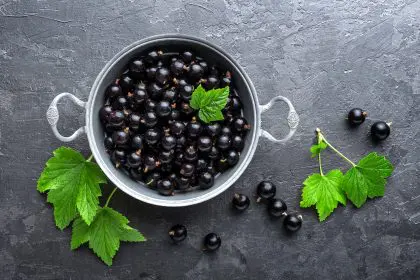Recent science is changing everything we thought we knew about sustainable weight loss. A groundbreaking study published in Obesity Science & Practice reveals that focusing on just two nutrients – protein and fiber – could be the key to dropping pounds without obsessing over calories or keeping detailed food logs. This revolutionary approach is transforming how experts think about weight management and offering hope to those tired of restrictive dieting methods.
The study that’s making experts rethink everything
When researchers followed 22 participants through a year-long journey of dietary education, they discovered something remarkable. Those who increased their protein and fiber intake lost up to 9.6% of their body weight – and they did it without the traditional weight loss tools many of us have come to dread. This discovery suggests that making simple dietary changes could be more effective than complicated weight loss programs.
The 15 ways protein and fiber transform your weight loss journey
- Natural appetite control: The combination of protein and fiber works with your body’s natural systems to reduce hunger without counting calories. Study participants reported feeling naturally satisfied rather than artificially restricted.
- Sustained energy levels: Unlike quick-burning carbohydrates, protein and fiber provide steady, lasting energy. This helps eliminate the afternoon energy crashes that often lead to unhealthy snacking.
- Reduced snacking urges: By keeping you fuller longer, these nutrients naturally decrease the desire for between-meal snacks. Participants found themselves reaching less frequently for unplanned treats.
- Better portion control: When meals contain adequate protein and fiber, you naturally feel satisfied with smaller portions. This leads to reduced calorie intake without the need for strict measuring.
- Muscle preservation: During weight loss, adequate protein intake helps maintain valuable muscle mass. This supports a healthy metabolism and stronger body composition.
- Improved digestion: Fiber supports healthy gut function and regular bowel movements, which participants reported made them feel lighter and more energetic.
- Blood sugar stabilization: The combination helps prevent dramatic blood sugar spikes and crashes, reducing cravings and supporting steady energy levels.
- Enhanced meal satisfaction: Protein and fiber-rich meals feel more substantial and satisfying, making the weight loss journey more enjoyable and sustainable.
- Simplified meal planning: Focusing on these two nutrients makes food choices clearer and easier, eliminating much of the confusion around diet planning.
- Sustainable habit formation: Unlike restrictive diets, this approach creates lasting dietary changes participants can maintain long-term.
- Reduced calorie intake: Natural satiety leads to eating fewer calories without active tracking, making weight loss feel more natural.
- Better workout recovery: Adequate protein supports muscle repair and recovery after exercise, improving overall fitness results.
- Improved sleep quality: Stable blood sugar and satisfied hunger supported better rest among study participants.
- Consistent energy throughout the day: No more afternoon energy crashes means better productivity and fewer cravings.
- Long-term weight maintenance: These habits support keeping weight off after losing it, addressing one of the biggest challenges in weight management.
Making these changes work in real life
The beauty of this approach lies in its simplicity. Instead of tracking every bite, focus on incorporating these nutrients into each meal. Start with breakfast, often the meal most lacking in protein and fiber. Choose eggs or Greek yogurt paired with whole grain toast or oatmeal topped with fruits and nuts.
For lunch and dinner, aim to fill half your plate with fiber-rich vegetables, a quarter with lean protein, and the remaining quarter with whole grains. This simple approach makes meal planning straightforward while ensuring you get the benefits of both nutrients.
The science behind the success
According to registered dietitian Keri Gans, author of The Small Change Diet, these nutrients work differently than simple carbohydrates in your body. When you consume protein, it triggers the release of satiety hormones that signal to your brain that you’re full. Meanwhile, fiber adds bulk to your meals without adding calories, helping you feel physically full while eating less.
Smart protein and fiber choices
Getting enough of these nutrients doesn’t have to be complicated. Focus on incorporating lean proteins like chicken, fish, eggs, and legumes into your meals. For fiber, choose whole grains over refined versions and include plenty of fruits and vegetables throughout the day.
When to seek professional guidance
While this approach works well for many people, consulting a registered dietitian can be helpful if you’re not seeing results or have specific dietary restrictions. They can create a personalized plan that ensures you’re meeting all your nutritional needs while working toward your weight loss goals.
Building lasting habits for success
The key to success with this approach is making gradual changes that become natural parts of your routine. Start by making simple swaps and additions to your current diet rather than attempting a complete overhaul. Focus on progress over perfection, and remember that sustainable weight loss takes time.
The future of weight management
This protein and fiber-focused approach represents a significant shift away from traditional dieting methods. By focusing on these key nutrients, you’re not just losing weight – you’re building habits that can support your health for years to come. The study participants’ success suggests that this could be the future of sustainable weight management, offering a path to lasting results without the stress of conventional dieting.
Remember that successful weight loss isn’t just about numbers on a scale. This approach supports overall health while helping you reach your weight goals. It’s about creating a sustainable lifestyle rather than following a restrictive diet.














